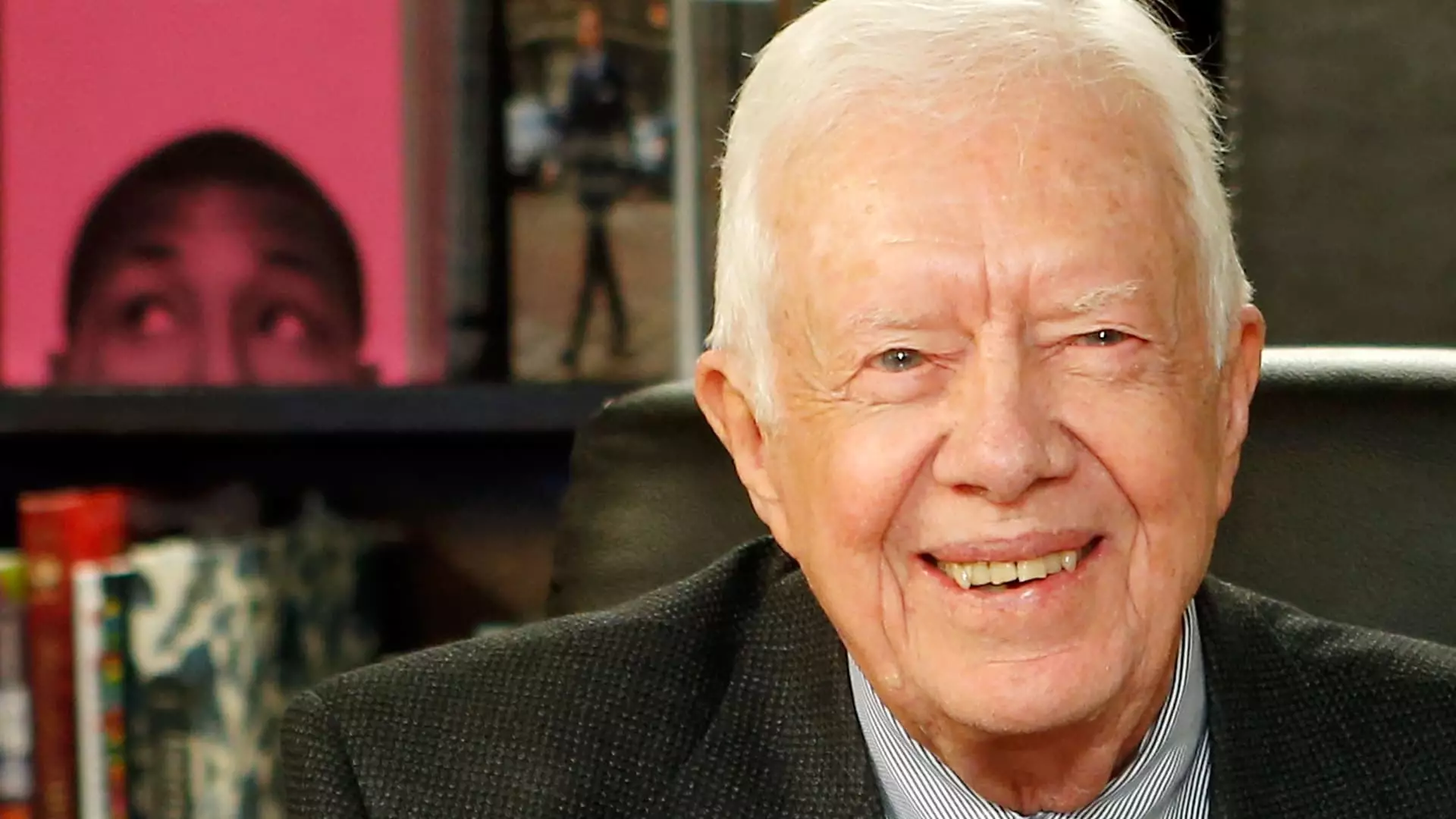Jimmy Carter, the 39th President of the United States, left an indelible mark on the political landscape through his unique blend of personal humility, moral conviction, and unwavering commitment to peace and human rights. Serving from 1977 to 1981, Carter brought a different approach to the presidency—one characterized by a profound sense of responsibility toward others, both domestically and internationally. His legacy is framed not just by his political triumphs and challenges but also by his philosophical and humanitarian views, which continue to resonate in discussions of modern governance.
Early Aspirations and Moral Integrity
Carter’s journey began with an earnest declaration at the 1976 Democratic National Convention that underscored his straightforward nature: “My name is Jimmy Carter, and I’m running for president.” This simplicity was a hallmark of his approach. He represented a type of leadership that was grounded in morality, openly admitting his flaws while striving for a higher ethical standard; for instance, his candid acknowledgment of human shortcomings in an interview with Playboy reflects a rare vulnerability in public figures.
The President’s insistence on addressing energy crises by framing them as a “moral equivalent of war” demonstrated his belief in tackling major national issues with collective effort rather than destruction. This perspective formed a bedrock of his administration’s policies, which focused not only on immediate challenges but on the moral implications of those challenges for the ever-evolving American identity.
Jim Carty’s commitment to peace is perhaps one of the most defining aspects of his administration. His endeavors in international diplomacy, particularly in seeking peace between Egypt and Israel, showcased a strategic pivot from military might to diplomatic negotiation. The normalization of relations with China signaled a willingness to engage with former adversaries, fundamentally reshaping international relations. This approach was not without scrutiny; however, he maintained that the promotion of peace and human rights was paramount.
In a retrospective analysis during a CNBC interview, Carter articulated his pride in prioritizing human rights and peace over political capital—an acknowledgment that sometimes the right choice is not the most popular one. He candidly remarked on the political fallout of not responding militarily to the Iranian hostage crisis, pointing out that the moral high ground he took ultimately spared innocent lives.
As his presidency drew to a close, Carter’s reflections were imbued with a sense of loss—not just politically but morally. His farewell address highlighted that American values are fundamental necessities rather than mere ideals. He expressed concern for the growing divide in American society, emphasizing the need for unity based on shared principles. His cautionary tone resonates strongly even decades later, as polarization remains a contemporary issue.
Post-presidency, Carter’s work through the Carter Center further exemplified his lifelong commitment to humanitarian efforts. From promoting democracy to eradicating diseases, his focus shifted rightly toward elevating the standard of living and civil rights for all, showcasing that true leadership extends far beyond political office.
Jimmy Carter’s unwavering faith in humanity became increasingly apparent as he faced personal adversities, including his health challenges later in life. His remarks after being diagnosed with cancer reveal a profound acceptance and peace with mortality—an acceptance rooted in his Christian faith. His statement, “I found that I was absolutely and completely at ease with death,” reflects an approach to life that prioritizes faith and service over fear and mourning.
Carter’s ability to navigate personal and political challenges gracefully underscores the essence of his character—unapologetically human, striving for goodness in a world often marked by conflict and division.
Jimmy Carter embodies a kind of leadership and moral clarity that remains extraordinary in the realm of political dialogue today. His legacy as a champion of peace and human rights is not confined to the past; it remains a guiding force for future generations navigating the complexities of global governance and ethical leadership. As we reflect on his life, we are reminded of the enduring impact of living one’s truth and advocating for the universal principles of freedom and dignity. Despite the trials he faced, Carter’s journey reflects a resolute belief in humanity and the pursuit of a just, peaceful world.

